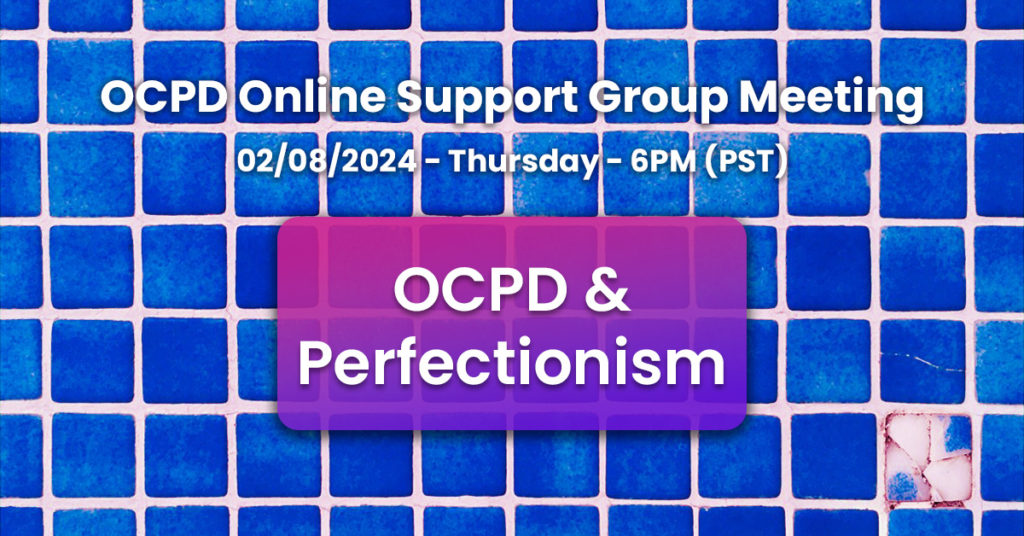In “Atlas of the Heart”, the section on Shame flows directly into Perfectionism and so I thought it pertinent to follow that thread through to completion. If you’re just now joining us, be sure to check out the Shame section for full context.

Places We Go When We Fall Short
Shame, Self-Compassion, Perfectionism, Guilt, Humiliation, Embarrassment
Perfectionism
Shame is the birthplace of perfectionism. Perfectionism is not striving to be our best or working toward excellence. Healthy striving is internally driven. Perfectionism is externally driven by a simple but potentially all-consuming question: What will people think?
It may seem counterintuitive, but one of the biggest barriers to working toward mastery is perfectionism. In our leadership research, we’ve learned that achieving mastery requires curiosity and viewing mistakes and failures as opportunities for learning. Perfectionism kills curiosity by telling us that we have to know everything or we risk looking “less than.” Perfectionism tells us that our mistakes and failures are personal defects, so we either avoid trying new things or we barely recover every time we inevitably fall short.
Papers by Paul Hewitt and colleagues and Simon Sherry and colleagues provide evidence that people with high levels of perfectionistic traits:
- Are doomed to fail at meeting their own expectations and the expectations that they assume are held by others
- Perceive themselves as consistently falling short of others’ expectations
- Behave in ways that result in perceived and actual exclusion and rejection by others
- Feel socially disconnected and have fewer social connections
I write a lot about perfectionism across my books. It’s a healthy dose of “Researcher, heal thyself.” I often call myself a recovering perfectionist and
an aspiring “good-enoughist.”
In The Gifts of Imperfection, I explain how perfectionism emerged from our research. The definition that best fit the data is that perfectionism is a self-destructive and addictive belief system that fuels this primary thought: If I look perfect, live perfectly, work perfectly, and do everything perfectly, I can avoid or minimize the painful feelings of shame, judgment, and blame.
Perfectionism is not self-improvement. Perfectionism is, at its core, about trying to earn approval and acceptance. Most perfectionists were raised being praised for achievement and performance (good grades, good manners, nice appearance, sports prowess, rule following, people pleasing).
Somewhere along the way, we adopt this dangerous and debilitating belief system: I am what I accomplish and how well I accomplish it. Please. Perform. Perfect. Healthy striving is self-focused — How can I improve? Perfectionism is other-focused — What will they think?
Understanding the difference between healthy striving and perfectionism is critical to laying down the shield and picking up your life. Research shows that perfectionism hampers success. In fact, it often sets you on the path to depression, anxiety, addiction, and life paralysis. “Life paralysis” refers to all of the opportunities we miss because we’re too afraid to put anything out in the world that could be imperfect. It’s also all of the dreams that we don’t follow because of our deep fear of failing, making mistakes, and disappointing others. It’s terrifying to risk when you’re a perfectionist; your self-worth is on the line.
As previously mentioned, perfectionism is a self-destructive and addictive belief system that we use to try to protect ourselves from feelings of shame, judgment, and blame. It is a twenty-ton shield that we lug around thinking it will protect us when in fact it’s the thing that’s really preventing us from taking flight. Let me explain why I describe perfectionism as being both self-destructive and addictive.
Perfectionism is self-destructive simply because there is no such thing as perfection. Perfection is an unattainable goal. Additionally, perfectionism is more about perception — we want to be perceived as perfect. Again, this is unattainable — there is no way to control perception, regardless of how much time and energy we spend trying.
Perfectionism is addictive, because when we invariably do experience shame, judgment, and blame, we often believe it’s because we weren’t perfect enough. So rather than questioning the faulty logic of perfectionism, we become even more entrenched in our quest to live, look, and do everything just right.
Feeling shamed, judged, and blamed (and the fear of these feelings) are realities of the human experience. Perfectionism actually increases the odds
that we’ll experience these painful emotions and often leads to self-blame: It’s my fault. I’m feeling this way because I’m not good enough.
Other Resources
I’ve included a few blurbs from the top search results that I found informative and helpful:
Perfectionism | Psychology Today
Is perfectionism ever good for you?
There is a difference between striving for excellence and demanding perfection. Adaptive or positive perfectionists set lofty goals, have high standards, and work relentlessly hard for their success; they are achievement-oriented, whereas maladaptive perfectionists are failure-oriented. Adaptive perfectionists desire growth, enjoy being challenged, and problem-solve well. Their perfectionistic tendencies are a strength, not a weakness.
How can you overcome perfectionism?
Letting go of the comparison mindset can help people achieve at a high level, without being beholden to some impossibly perfect ideal. They can do this by practicing mindfulness and being present in the moment, using compassionate self-talk, and challenging negative self-judgments. The key is to realize that an endeavor can be worthwhile even if it’s not perfect.
Perfectionism: 10 Signs of Perfectionist Traits | VeryWellMind.com
(Summary below, the link also provides some exercises and tools for most on the list)
10 Signs of Perfectionism
- All-or-Nothing Thinking
- Being Highly Critical
- Feeling Pushed By Fear
- Having Unrealistic Standards
- Focusing Only on Results
- Feeling Depressed by Unmet Goals
- Fear of Failure
- Procrastination
- Defensiveness
- Low Self-Esteem
Self-Help Strategies for Perfectionism | GoodTherapy
- Challenge “black or white” or “all or nothing” thoughts. Remind yourself that one slip-up does not ruin the progress you’ve already make and are still making toward a goal. Remind yourself that everyone has flaws and makes mistakes.
- Write down or journal positive affirmations about yourself in the area or areas you are the most perfectionistic. Place them somewhere you see them often.
- Be aware of your self-talk. Do you use words like “should” or “must,” or do you put down on yourself often? Think of positive replacements for negative self-evaluations.
- Mess up on purpose. Find an activity that you are particularly perfectionistic about and don’t put in 100% effort. See what happens.
- Try a new hobby. Trying something new often means starting at a beginner level; the likelihood of making mistakes is often high in any learning process. Focus on enjoying the new activity at your current skill level and pay attention to the learning process rather than the end goal.
The Dimensions of Perfectionism | Cognitive Therapy and Research
Abstract
Perfectionism is a major diagnostic criterion for one DSM-III diagnosis, and it has been hypothesized to play a major role in a wide variety of psychopathologies. Yet there is no precise definition of, and there is a paucity of research on, this construct. Based on what has been theorized about perfectionism, a multidimensional measure was developed and several hypotheses regarding the nature of perfectionism were tested in four separate studies. The major dimension of this measure was excessive concern over making mistakes. Five other dimensions were identified, including high personal standards, the perception of high parental expectations, the perception of high parental criticism, the doubting of the quality of one’s actions, and a preference for order and organization. Perfectionism and certain of its subscales were correlated with a wide variety of psychopathological symptoms. There was also an association between perfectionism and procrastination. Several subscales of the Multidimensional Perfectionism Scale (MPS), personal standards and organization, were associated with positive achievement striving and work habits. The MPS was highly correlated with one of the existing measures of perfectionism. Two other existing measures were only moderately correlated with the MPS and with each other. Future studies of perfectionism should take into account the multidimensional nature of the construct.

![[Zoom Meeting] OCPD & Disgust 🤢](https://www.youmeandocpd.com/wp-content/uploads/2023/12/2023-12-14-OCPD-Disgust-1024x536.jpg)
![[Zoom Meeting] Reflecting on the Year 2023 📝🔍](https://www.youmeandocpd.com/wp-content/uploads/2023/12/2023-12-28-OCPD-Reflecting-on-the-Year-1024x536.jpg)